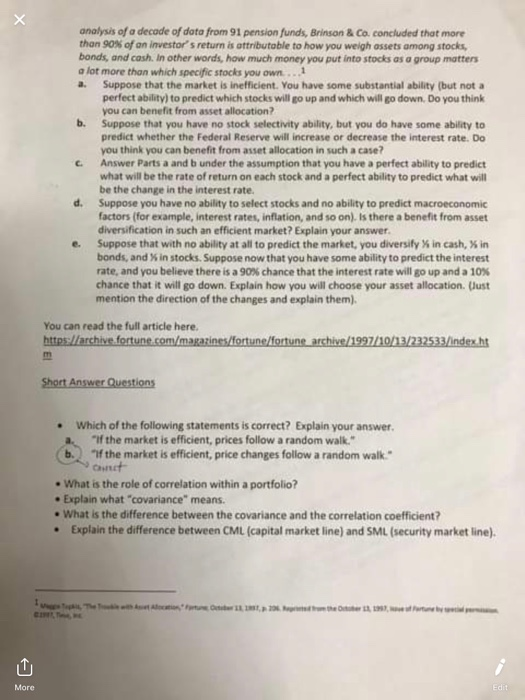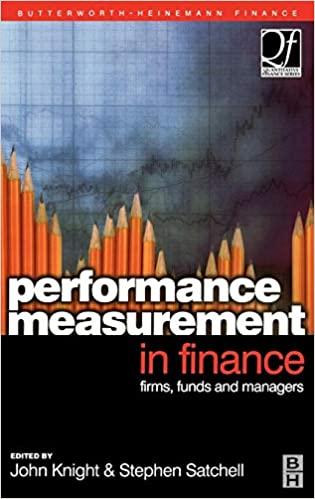could someone help me with the short answer?

analysis of a decade of data from 91 pension funds, Brinson & Co. concluded that more than Son of an investor's return is attributable to how you weigh assets among stocks, bonds, and cash. In other words, how much money you put into stocks as a group matters a lot more than which specific stocks you own....1 a. Suppose that the market is inefficient. You have some substantial ability (but not a perfect ability to predict which stocks will go up and which will go down Do you think you can benefit from asset allocation? b. Suppose that you have no stock selectivity ability, but you do have some ability to predict whether the Federal Reserve will increase or decrease the interest rate. Do you think you can benefit from asset allocation in such a case? Answer Parts a and b under the assumption that you have a perfect ability to predict what will be the rate of return on each stock and a perfect ability to predict what will be the change in the interest rate. d. Suppose you have no ability to select stocks and no ability to predict macroeconomic factors (for example, interest rates, inflation, and so on). Is there a benefit from asset diversification in such an efficient market? Explain your answer. Suppose that with no ability at all to predict the market, you diversity in cash, in bonds, and in stocks. Suppose now that you have some ability to predict the interest rate, and you believe there is a 90% chance that the interest rate will go up and a 10% chance that it will go down. Explain how you will choose your asset allocation. (lust mention the direction of the changes and explain them). You can read the full article here. https://archive fortune.com/magazines/fortune/fortune archive/1997/10/13/232533/index.ht Short Answer Questions Which of the following statements is correct? Explain your answer. "If the market is efficient, prices follow a random walk." (b. If the market is efficient, price changes follow a random walk." What is the role of correlation within a portfolio? Explain what covariance" means. What is the difference between the covariance and the correlation coefficient? Explain the difference between CML (capital market line) and SML (security market line)








